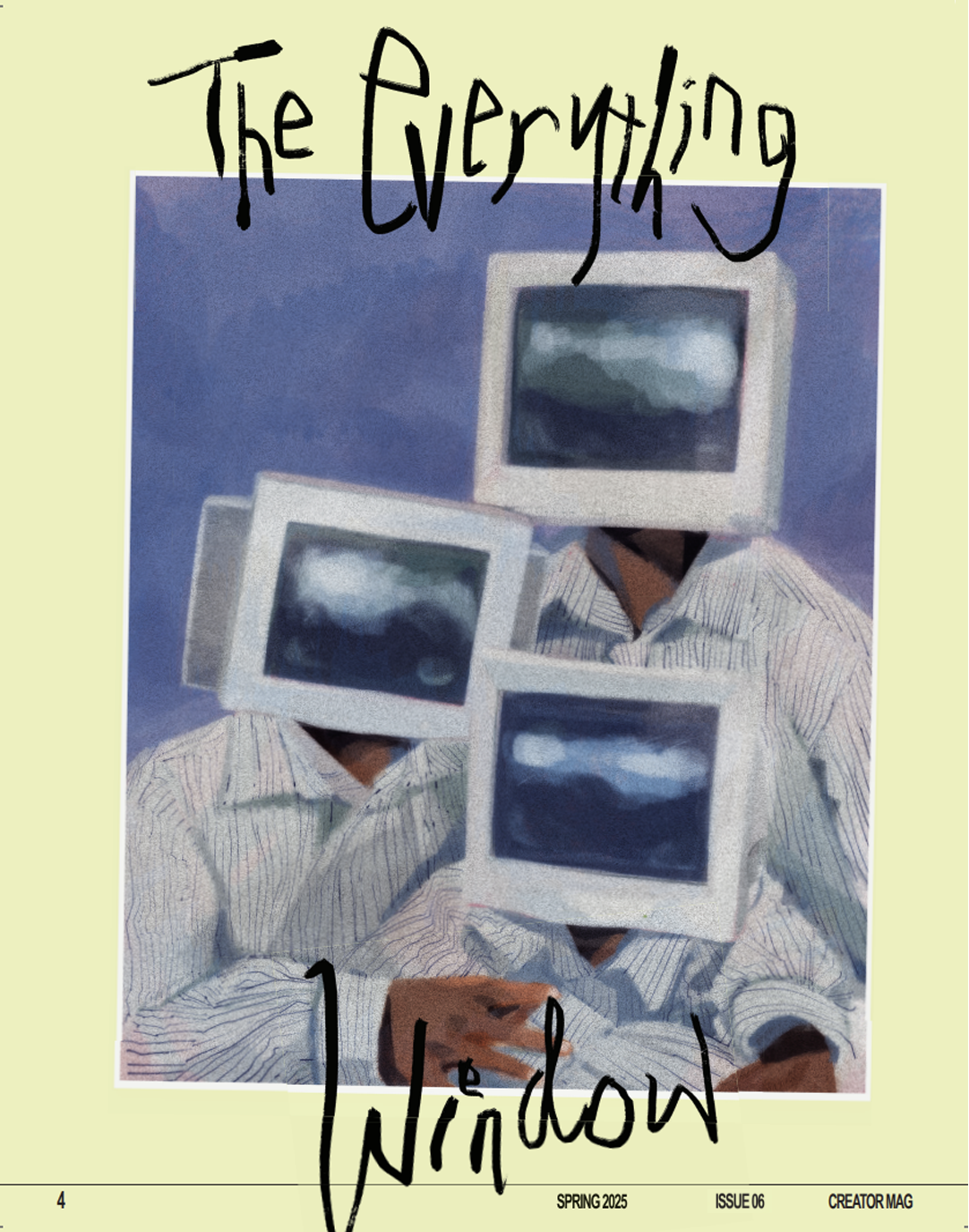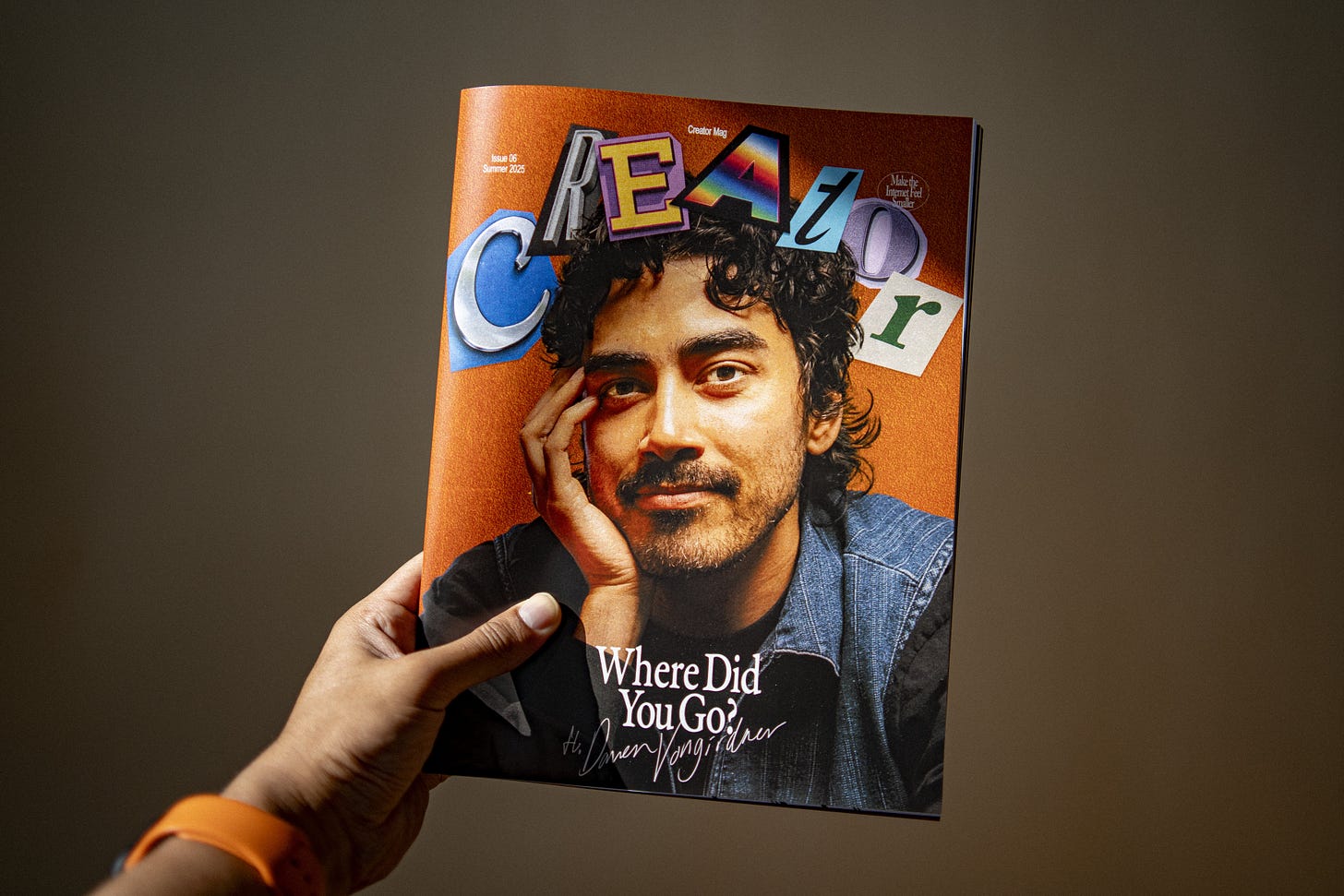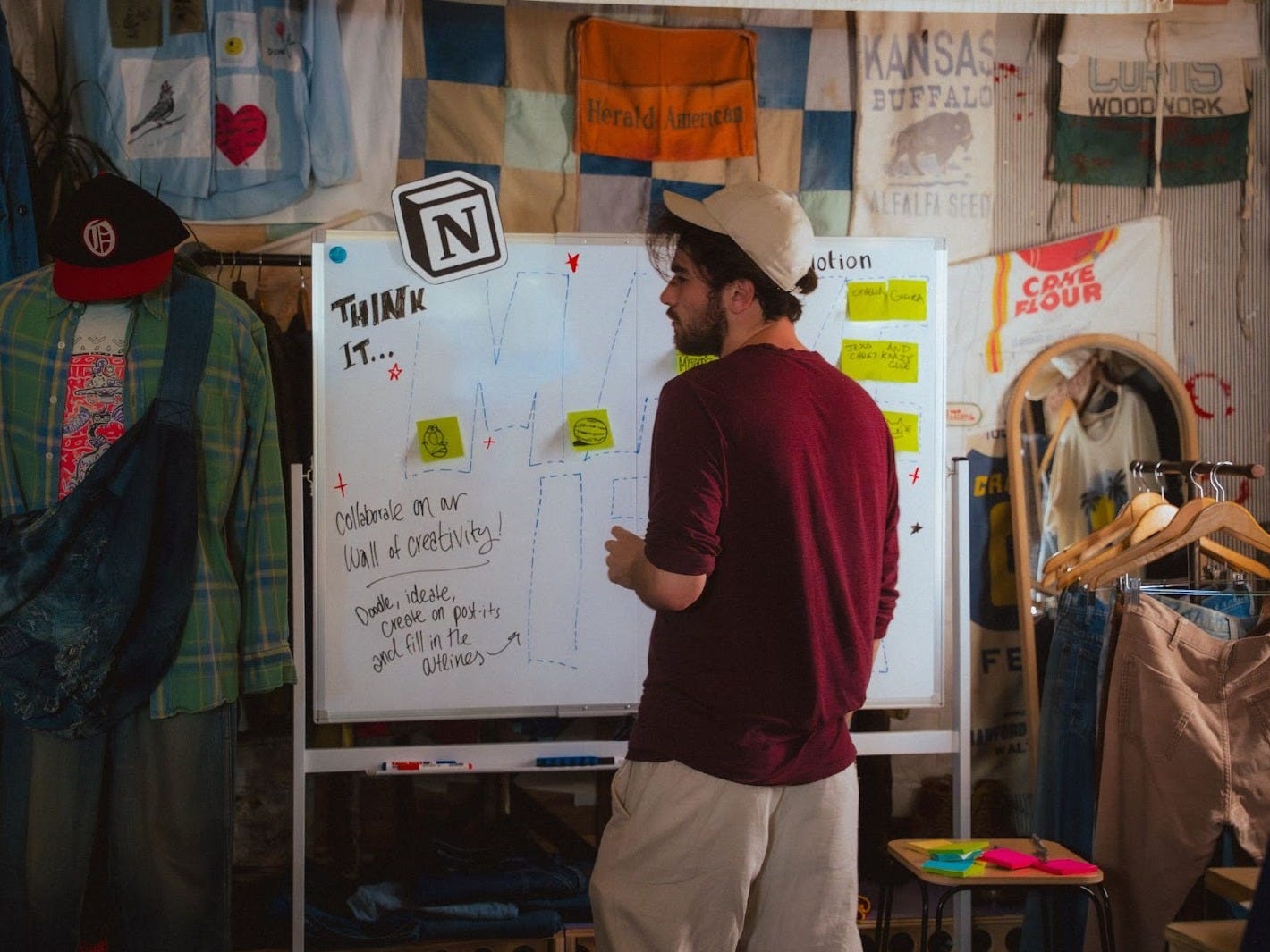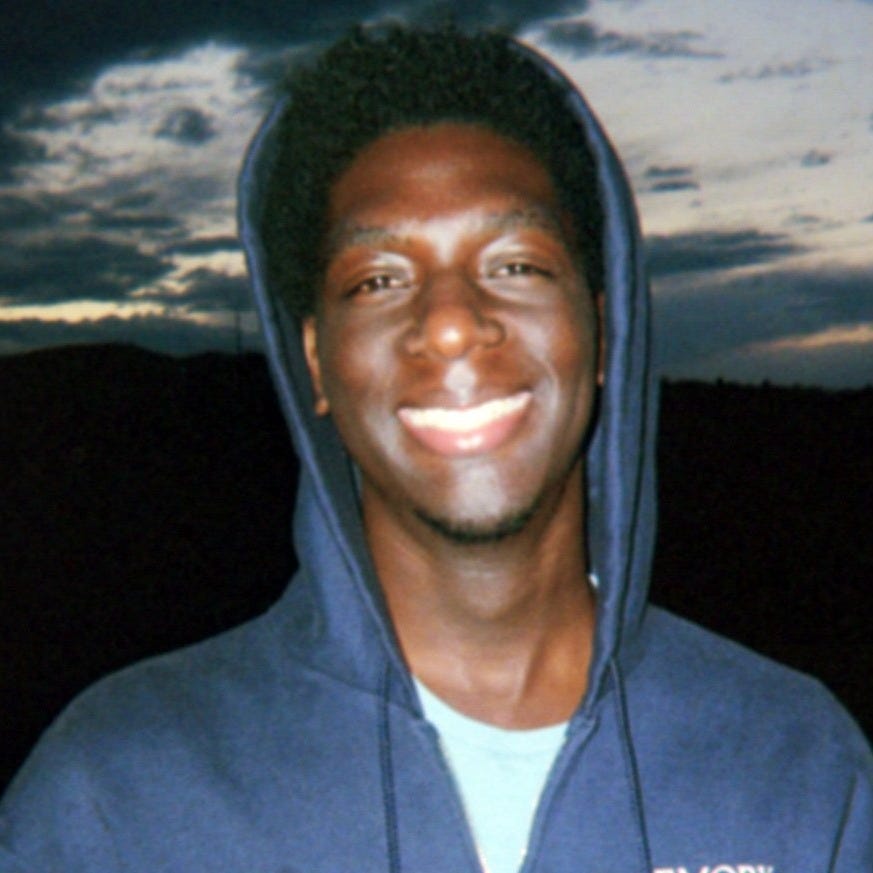The Everything Window 🪟
Peeking into Issue Six
blog.seventy-nine // In case you missed it, we released a new magazine last week.
That magazine featured stories from over ten unique contributors—our first time opening the print up to guest submissions, all under the theme “WHERE DID YOU GO?”
We’ll be sharing a select number of those pieces in the coming weeks, starting with Hope Habia’s wonderful essay, “The Everything Window.” We met Hope when he flew out for our first Block Party in March; his pitch stood our for its sense of wonder, focus on family, and beautiful prose.
Scroll down to read Hope’s piece. And while you’re here, consider picking up your copy of Issue 6, which features fifty-six pages of original words and artwork—curated by our staff, created by our neighborhood.
Not only is this the best way to support our work, but print, quite simply, always hits different.* Reading through each story (and flipping through Moy’s masterfully-designed spread) is best enjoyed nestled on a couch or splayed out at the park, far away from any screens.
— NGL
P.S. Next week, we’ll be opening up the submission form for Issue 7—and revealing the season-long theme. Keep an eye out across our channels if you’d like to pitch a story!
P.P.S. Last blog, we reviewed Howtown’s investigation into the most controversial hot sauce on the Internet. You can read it here.
Sponsored by Notion
Think It, Make It. Here’s How We Organize Our Creativity 💡
At the Block Party last Saturday, we asked attendees to drop sticky notes on our “Wall of Creativity”—featuring ideas, doodles, and everything in between.
Why? Because lightbulb moments don’t come with a straight stroke of the brush. No, creativity is more like a squiggly line, and you never really know when lightning will strike next.
But here’s a secret: You can organize that creativity, all in one place. Here’s how we do it using Notion →
🚐 Our trusty Roadmap keeps our projects on track
🏦 Our Budget Planner sets expectations
🪣 Our Bucket is the place to scribble down big ideas
✏️ And our Contributor Submission form helps sort story pitches.
Creator Mag readers receive up to 1 year of free Notion Plus—get started on Notion today.
P.S. Reply to this email and we’ll send you a templatized version of our Notion workspace!
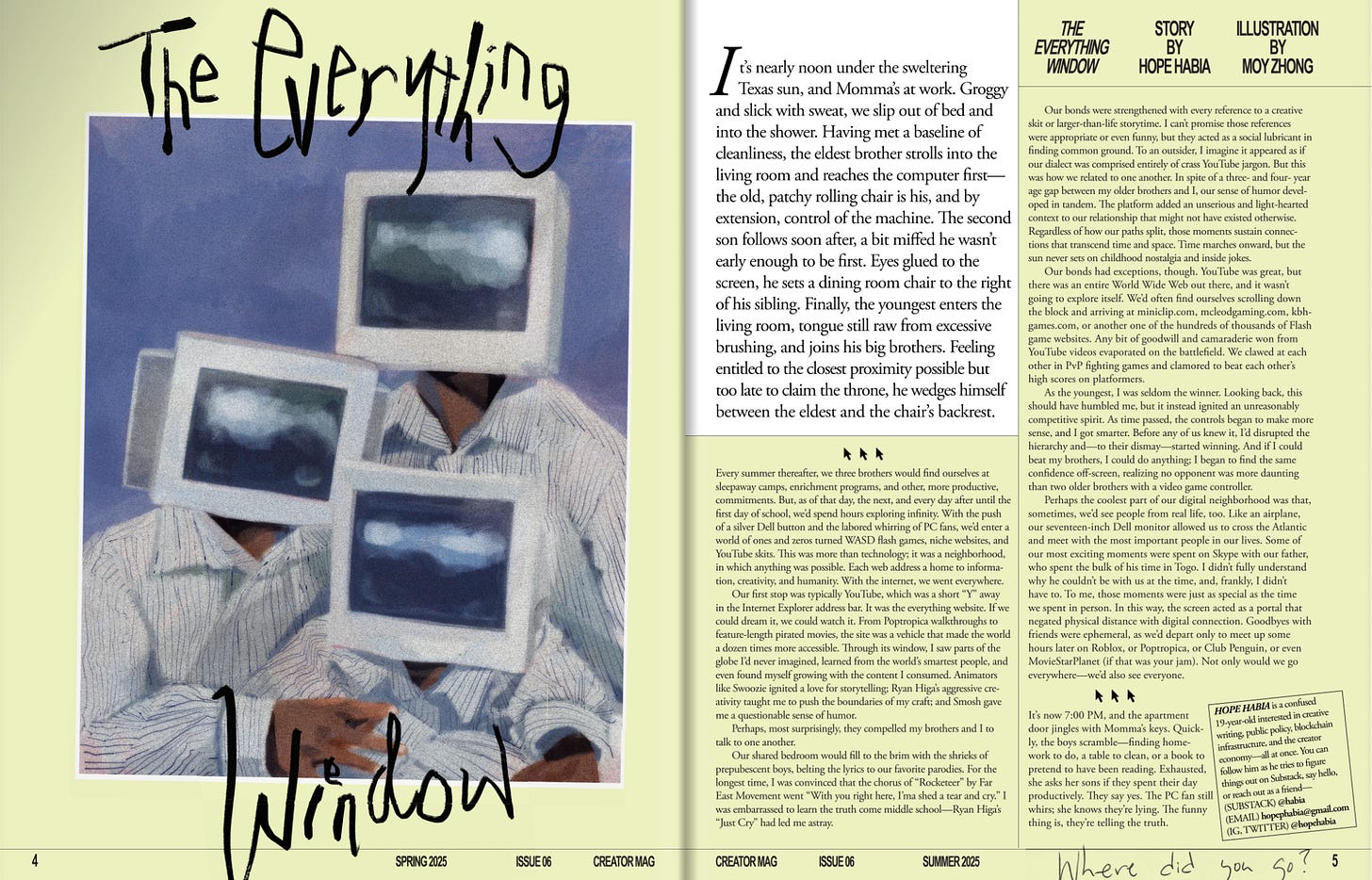
It’s nearly noon under the sweltering Texas sun, and Momma’s at work.
Groggy and slick with sweat, we slip out of bed and into the shower. Having met a baseline of cleanliness, the eldest brother strolls into the living room and reaches the computer first—the old, patchy rolling chair is his, and by extension, control of the machine.
The second son follows soon after, a bit miffed he wasn’t early enough to be first. Eyes glued to the screen, he sets a dining room chair to the right of his sibling.
Finally, the youngest enters the living room—tongue still raw from excessive brushing—and joins his big brothers. Feeling entitled to the closest proximity possible (but too late to claim the throne), he wedges himself between the eldest and the chair’s backrest.
Every summer thereafter, we three brothers would find ourselves at sleepaway camps, enrichment programs, and other, more productive, commitments. But, as of that day, the next, and every day after until the first day of school, we’d spend hours exploring infinity.
This was more than technology; it was a neighborhood, in which anything was possible.
With the push of a silver Dell button and the labored whirring of PC fans, we’d enter a world of ones and zeros turned WASD flash games, niche websites, and YouTube skits. This was more than technology; it was a neighborhood, in which anything was possible. Each web address a home to information, creativity, and humanity. With the Internet, we went everywhere.
Our first stop was typically YouTube, which was a short “Y” away in the Internet Explorer address bar. It was the everything website. If we could dream it, we could watch it. From Poptropica walkthroughs to feature-length pirated movies, the site was a vehicle that made the world a dozen times more accessible. Through its window, I saw parts of the globe I’d never imagined, learned from the world’s smartest people, and even found myself growing with the content I consumed.
Animators like Swoozie ignited a love for storytelling; Ryan Higa’s aggressive creativity taught me to push the boundaries of my craft; and Smosh gave me a questionable sense of humor. Perhaps, most surprisingly, they compelled my brothers and I to talk to one another. Our shared bedroom would fill to the brim with the shrieks of prepubescent boys, belting the lyrics to our favorite parodies.
For the longest time, I was convinced that the chorus of “Rocketeer” by Far East Movement went “With you right here, I’ma shed a tear.” I was embarrassed to learn the truth come middle school—Nigahiga’s “Just Cry” had led me astray.
Those moments sustain connections that transcend time and space. Time marches onward, but the sun never sets on childhood nostalgia and inside jokes.
Our bonds were strengthened with every reference to a creative skit or larger-than-life storytime. I can’t promise those references were appropriate (or even funny), but they acted as a social lubricant in finding common ground. To an outsider, I imagine it appeared as if our dialect was comprised entirely of crass YouTube jargon. But this was how we related to one another.
In spite of a three- and four- year age gap between my older brothers and I, our sense of humor developed in tandem. The platform added an unserious and light-hearted context to our relationship that might not have existed otherwise. Regardless of how our paths split, those moments sustain connections that transcend time and space. Time marches onward, but the sun never sets on childhood nostalgia and inside jokes.
Our bonds had exceptions, though. YouTube was great, but there was an entire World Wide Web out there, and it wasn’t going to explore itself. We’d often find ourselves scrolling down the block and arriving at Miniclip, McLeodGaming, KBH Games, or another one of the hundreds of thousands of Flash game websites.
Any bit of goodwill and camaraderie won from YouTube videos evaporated on the battlefield. We clawed at each other in PvP fighting games and clamored to beat each other’s high scores on platformers.
If I could beat my brothers, I could do anything; I began to find the same confidence off-screen, realizing no opponent was more daunting than two older brothers with a video game controller.
As the youngest, I was seldom the winner. Looking back, this should have humbled me, but it instead ignited an unreasonably competitive spirit. As time passed, the controls began to make more sense, and I got smarter. Before any of us knew it, I’d disrupted the hierarchy and—to their dismay—started winning. And if I could beat my brothers, I could do anything; I began to find the same confidence off-screen, realizing no opponent was more daunting than two older brothers with a video game controller.
Perhaps the coolest part of our digital neighborhood was that, sometimes, we’d see people from real life, too. Like an airplane, our seventeen-inch Dell monitor allowed us to cross the Atlantic and meet with the most important people in our lives. Some of our most exciting moments were spent on Skype with our father, who spent the bulk of his time in Togo. I didn’t fully understand why he couldn’t be with us at the time, and, frankly, I didn’t have to. To me, those moments were just as special as the time we spent in person.
In this way, the screen acted as a portal that negated physical distance with digital connection. Goodbyes with friends were ephemeral, as we’d depart…only to meet up some hours later on Roblox, or Poptropica, or Club Penguin, or even MovieStarPlanet (if that was your jam).
Not only would we go everywhere—we’d also see everyone.
In this way, the screen acted as a portal that negated physical distance with digital connection.
It’s now 7:00 PM, and the apartment door jingles with Momma’s keys. Quickly, the boys scramble—finding homework to do, a table to clean, or a book to pretend to have been reading.
Exhausted, she asks her sons if they spent their day productively. They say yes.
The PC fan still whirs; she knows they’re lying. The funny thing is, they’re telling the truth.
Hope Habia is a confused nineteen-year-old interested in creative writing, public policy, blockchain infrastructure, and the creator economy—all at once. You can follow him on Substack as he tries to figure things out.
Thanks for reading! Shoot us a reply, comment, or DM if anything resonated with you in particular—we respond to them all.
* No bias.




